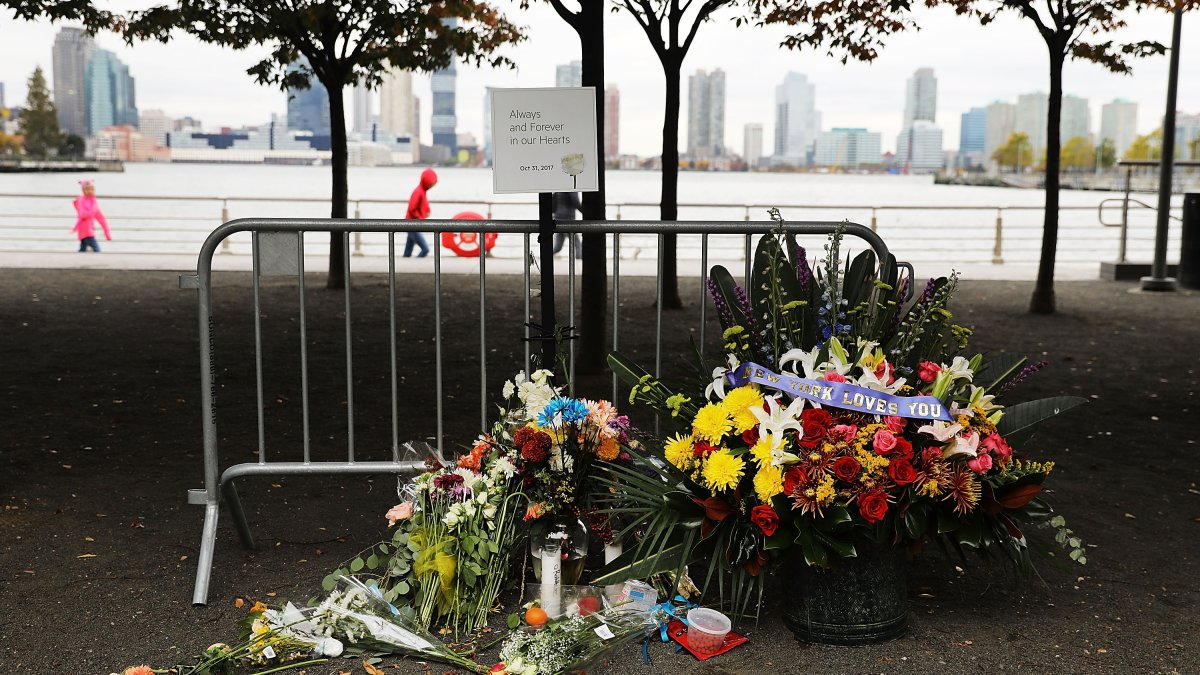what there is to know
- The jury that decided to sentence New York City bike lane killer Sayfullo Saipov to death had to resume that part of deliberations on Thursday because a juror was missing; the absence ended up being excused.
- The federal judge opted for a substitute trial, on the side of the prosecution, instead of a mistrial as requested by the defense; the previous jury of 12 convicted Saipov of killing 8 people in a 2017 terrorist attack in Manhattan.
- A federal jury in New York has not handed down a death sentence that has resisted legal challenge for decades, with the last execution in 1954. New York State, which no longer carries out the death penalty , has not executed anyone since 1963. .
NEW YORK — Deliberations in a New York death penalty case had to resume on Thursday, less than a day after the discussions, due to the absence of a juror, whose absence ended up being excused because her brother suffered a heart attack.
Jurors have previously convicted Sayfullo Saipov of killing eight people on a Manhattan bike path five years ago in a terrorist attack. The verdict fell at the end of January, while the phase of deliberations on the death penalty began last week, on March 1. If the jury of 12 were to decide to execute Saipov, their vote would have to be unanimous. If at least one juror holds out, the 35-year-old former Paterson, New Jersey resident will spend the rest of his life in a maximum-security prison.
The judge first halted deliberations completely while the jury’s absence was investigated. Once the brother’s illness was confirmed, they returned to court. The judge sided with the prosecution’s request for an alternate jury instead of siding with the defense, which requested a mistrial. The process of replacing absent jurors had been underway since Thursday morning. Deliberations were to resume later in the day.
The group hadn’t gotten very far. They spent about two and a half hours deliberating on Wednesday before being sent home. It only took them 10 minutes to send their first note a day ago. The judge was asked if the panel could argue that lethal injection is the current method of death penalty in the United States and that there is currently a moratorium on federal executions.
U.S. District Judge Vernon S. Broderick told jurors that neither issue was appropriate for discussion during deliberations and told them not to consider either.
Lawyers for Saipov, an Uzbek citizen, have never denied killing eight people by speeding a rental truck onto a lower Manhattan bike path popular with tourists. A woman visiting Belgium with her family, five Argentinian friends and two Americans were killed. Eighteen others were seriously injured.
Saipov’s lawyers asked the jury not to carry out the death penalty, noting that several members of his family, including his father and sisters, had expressed hope that one day he would realize how wrong he was to carry out a terrorist attack in the hope of favoring the Islamic State group.
And they stressed he would spend the rest of his life in solitary confinement, likely confined to a small cell for at least 22 hours a day with two 15-minute phone calls allowed each month to his family and a few showers allowed each week.
Prosecutors have called for death, saying Saipov never showed compassion for any of his victims as he tried to kill as many people as he could, even admitting he hoped to go to the Brooklyn Bridge after storming the bike path so he could kill. more people. there.
Afterwards, they said, he smiled proudly as he recounted his attack to FBI agents, even asking for the Islamic State organization’s flag to be hung in his hospital room, where he was recovering from an injury. shot after a police officer completed his attack.
A day after the attack, then-President Donald Trump tweeted that Saipov “SHOULD GET THE DEATH PENALTY!”
President Joe Biden later imposed a moratorium on executions for federal crimes, but his attorney general, Merrick Garland, allowed U.S. prosecutors to continue advocating capital punishment in cases inherited from previous administrations.
A federal jury in New York has not handed down a death sentence that has resisted legal challenge for decades, with the last execution in 1954. New York State, which no longer carries out the death penalty , has not executed anyone since 1963. .

